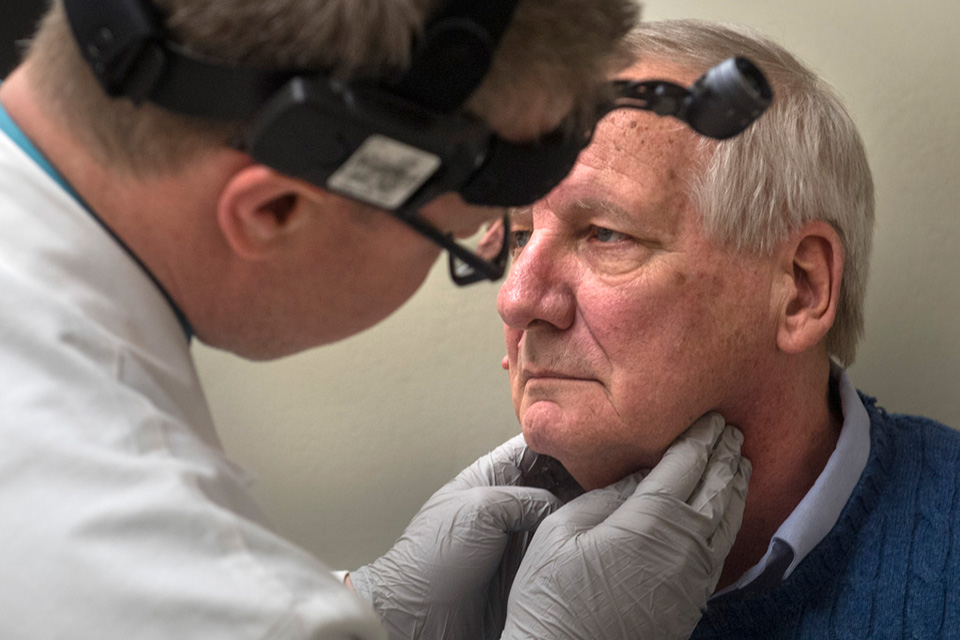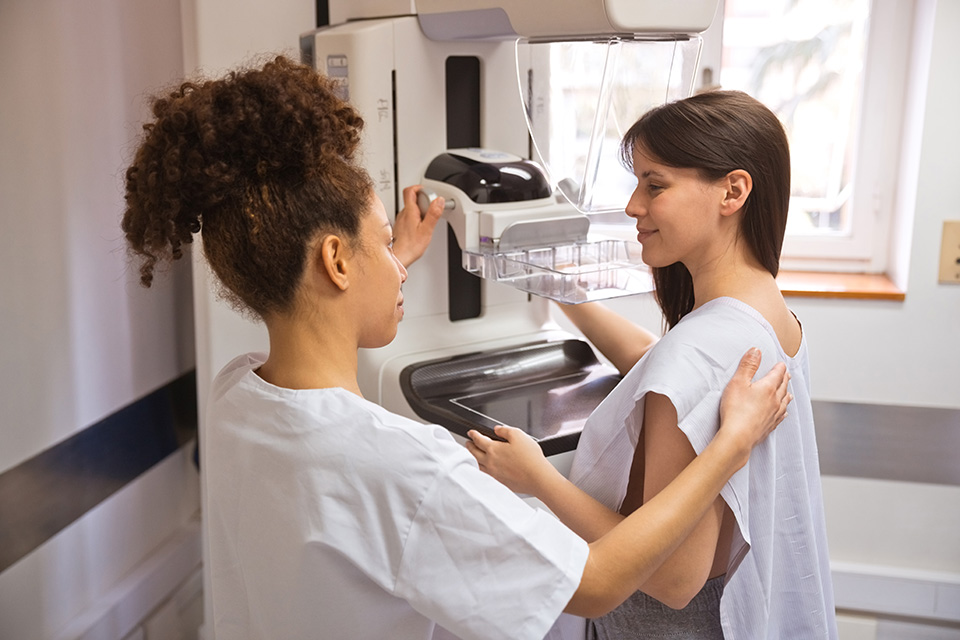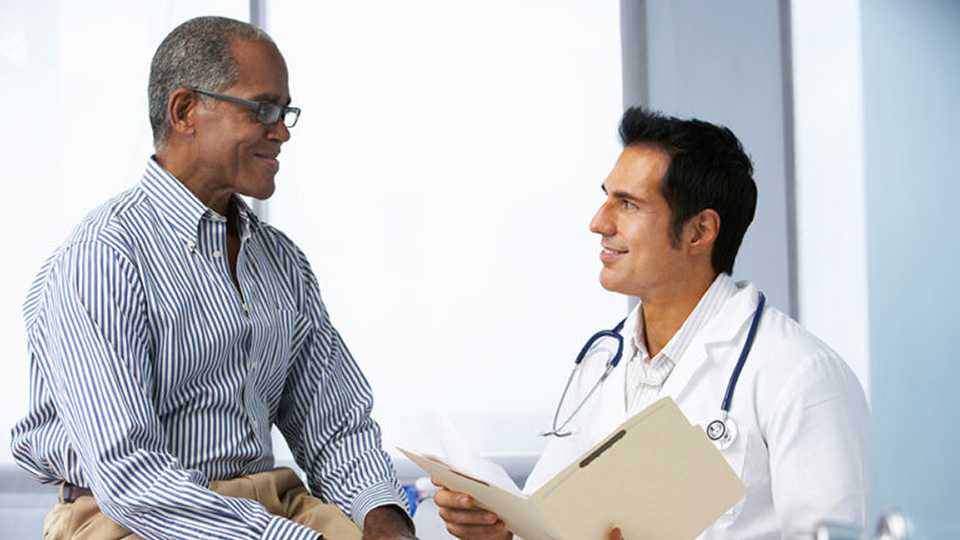Screenings can help find cancer at an early stage, even before experiencing symptoms.
You and your care provider will discuss what screenings are right for you. Depending on the screening, you could go to a facility for cancer services or radiology.
Routine cancer screenings alert us to changes in your body that may be, or could lead to, cancer. To do this we may:
- Give you a physical exam to check for signs of illness such as swelling in your neck, groin, or stomach area.
- Conduct laboratory tests that look at certain cells in your blood or other substances in your body.
- Take images of areas of your body, like with a mammogram, that looks at breast tissue for signs of cancer.

We understand that waiting for results can be difficult, so we always try to get the results of your screenings back to you within a few days. If the results are negative—meaning that they show no signs of cancer—we’ll see you at your next screening. If the results show something abnormal or inconclusive, we’ll make sure to do more tests to get you the answers you need.
We’re here to help you understand any symptoms or changes you may be experiencing.
Some cancers have symptoms and others do not; however, just because you have a symptom does not mean you have cancer. It is important to notice any changes happening in your body and to let us know so that we can work together to figure out what is causing the way you are feeling.
Symptoms to look out for:
- A lump in your breast or armpit
- Trouble urinating
- Bruising easily
- Changes in your bowel movements
- Coughing or hoarseness
- Heartburn or indigestion
- Trouble swallowing
- Constant fatigue
- Fever or night sweats
- Changes to your tongue or mouth
- Headaches
- Changes to your vision or hearing
- A sore that does not heal
- Yellow skin or eyes
- Swelling or lumps on your body
- Sudden weight gain or loss
If you have any of these symptoms and they do not get better in a few weeks, please call us to schedule an appointment. It’s important to remember that cancer often does not cause pain, so do not wait to feel pain or sickness before coming to see us.
Contact us to schedule your screening today.
We can create a personalized list of cancer screenings for you.
Deciding which cancers to be screened for and when depends on your age, gender at birth, and certain risk factors. For example, if you are a woman with no family history of breast cancer, screenings should start at age 40 and then repeat once a year. If you do have a family history of breast cancer, then we recommend that you start getting screened at a younger age.

We will work with you to put together a personalized list of cancer screenings. Most screenings are covered by health insurance plans, and we offer many at a low or no cost to you.
We offer many screenings for different cancer types.
Schedule a screening today
Screenings are an important part of your care. Meet with a doctor today and create your personalized plan.

